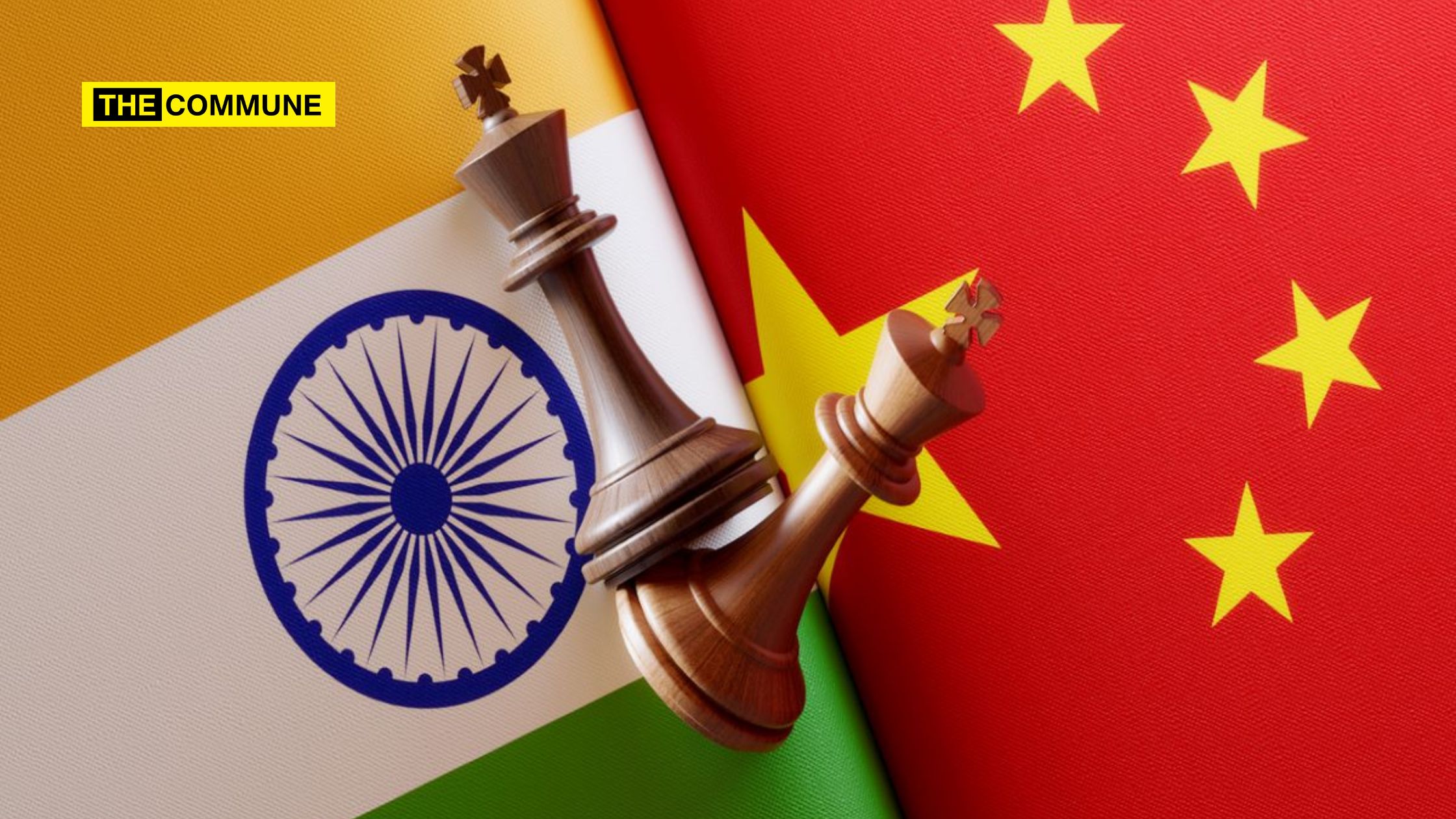
India finds itself in a delicate position, in seeking to balance its geopolitical alliances on the global stage. Sustaining a balance where its economic, financial and military needs are met along with ensuring that its growing clout in the Asian region is recognized by the world, is a challenge for a confident, strong, resurgent India. Striking this type of a healthy, sustainable balance has become somewhat tricky with new geopolitical realities, especially where China is concerned. While India has tried to remain neutral to China’s issues on both domestic and foreign matters, the communist-led People’s Republic of China has always felt threatened by the size and potential of India, often displaying openly aggressive behavior and engaging in anti-India rhetoric/actions, both in the Asian region as well as globally.
China’s economic growth since the 1980s has not been a healthy one.The rapid but lop sided growth has not covered all areas of economic, social and environmental importance but rather overly focused on building and operating a massive manufacturing-heavy infrastructure by taking undue advantage of a poorly paid labour force, operating on government-dictated terms and conditions, as is often the case with communist, dictatorial regimes.
Its one-sided Communist driven policies and economic “progress” has come at a huge cost to most other economic indices, indicative of a balanced, sustainable growth – population growth, health infrastructure, quality of education, organic market-based growth of the non-manufacturing sector, indigenous science and technology without state interference or stolen IP (intellectual property) of the West, its environment and acceptable levels of pollution, fast depletion of natural resources on account of excessive, unsustainable usage, deep mining and extraction etc. China made its trillions by agreeing to become the world’s cheapest manufacturer of goods at a huge expense to all human and environmental factors.
Yet its economic growth, as imbalanced as it is in terms of long term impact on all human and environmental factors, has given the Chinese State an important advantage that most other nations do not have – large cash reserves and credit worthy notes/bonds, that put the country’s Communist Party in a position to lobby hard in the Eastern as well as the Western hemispheres – all political, economic, social, educational, military, environmental initiatives and policy making, that can be influenced and “bought” by the lure of money, sponsorships and aid of any kind, in most parts of the world …have been analysed by China, lobbied for and put to good use in its own favour, by the cash and credit-rich Chinese government.
Hence, China’s advantage and financial influence in the recent re-alignment of geopolitical alliances that have taken many by surprise. Arch enemies, ideological foes, former world powers, dictatorships, military-run states, monarchies, democracies, communist states, religious, non-religious as well as secular states have all been brought together (or are in the process of being brought in) by China’s financial aid and influence, in what could end up being a different world order than that of the last century.
China’s intent in putting its cash/ credit line to work, appears to be a new, non-USA, non-Europe centric world order, in which China is the epicenter of global negotiations, alliances and military might, with the assistance of the member states of such a new re-aligned geopolitical order.
Against this background, it is worrisome but not surprising that China has managed to bring together sworn religious and political enemies, Saudi Arabia (centre of Sunni Islam) and Iran, (Centre of Shia Islam). In its list of recruited members, observers or partners, one finds countries following diverse philosophies of religion, administration, economic policy, military strategy, foreign relations and domestic social order.
In its desperation to shift the world’s focus away from a U.S and Europe centric leadership and strategic thought, China is trying to build a new global social order with itself as the fulcrum of all strategy in all areas of leadership and development. Will it succeed or will the hastily “bought” and put together relationships in spite of the vast differences between member nations, shine brightly in the short term only to fizzle out in the longer term?
Chinese diplomacy and without a doubt, possible economic or military deals/ support, seem to have worked, ahead of Saudi Arabia’s recent announcement of its decision to join the Shanghai Cooperation Organization (SCO) as a dialogue partner. The Islamic Kingdom of Saudi Arabia’s historical foe and nemesis, the Islamic Republic of Iran, became a member state last year and now, Riyadh’s decision to join the China-led bloc, has come just weeks after a Chinese-brokered deal to resume Iran-Saudi diplomatic ties. Some political, economic and security analysts insist that the SCO has both China and Russia at its forefront. Saudi’s decision to join the SCO is a significant diplomatic win for China, considering Saudi’s historically solid relationship with the U.S, the U.K and the West.
China has cleverly managed to bring two important enemy states in the Middle East, closer to a China and Russia coalition, as it continues in its mission of bringing various regional powers closer to its envisioned bloc of economic, financial and military cooperation under the aegis of an intergovernmental organization founded in Shanghai in 2001, named the Shanghai Cooperation Organization (SCO).
The Shanghai Cooperation Organization (SCO) is an inter-governmental organization founded in Shanghai on 15 June 2001. Until recently, the SCO currently comprised eight “Member” states (China,
Russia, India, Kazakhstan, Kyrgyzstan, Pakistan, Tajikistan, Uzbekistan), four “Observer” states with an interest in acceding to full membership (Iran, Belarus, Mongolia, Afghanistan) and six “Dialogue Partners” (Nepal, Sri Lanka, Turkey, Cambodia, Armenia, Azerbaijan). In 2022, Iran’s status was upgraded from Observer state to Member state. Egypt, Qatar and of late, Saudi Arabia are Dialogue partners of the SCO.
Since its creation in 2001, the SCO has focused on regional security issues, regional terrorism, ethnic separatism and religious extremism. The SCO’s priorities also include regional development. The bloc/ organization’s success with its areas of focus, is questionable with China’s own record on human rights, its support of Islamist states like Pakistan and Afghanistan, its own aggressive stand on border disputes and its expansionist ambitions.
The SCO has been an observer in the UN General Assembly since 2005. The SCO’s significance and clout can be gauged by its growing importance and participation in UN related decision making processes. In April 2010, the UN and SCO Secretariats signed a Joint Declaration on Cooperation. The SCO Secretariat has also established partnerships with various UN organizations like the UNESCO and several others.
China is clearly trying to fill the gap left by the erstwhile U.S.S.R/Soviet Union, a worthy and mighty opponent to the Western powers led by the U.S, in the post World War II era. The U.S.S.R’s collapse in 1991 led to the domination of the U.S, in world affairs. China is not only trying to fill a gap but is actively engaged in bringing about a new world order, where the U.S is not the principal consultant and advisor on world affairs, economic policy, financial regulations, security matters and world peace.
While China without explicitly saying so, wants a unilateral world with itself as both king and king-maker with a China-centric agenda, India has always been comfortable with a multilateral world order in which, balance of power is maintained by checks and balances put in place by a common charter of all member states. Now, with the shifting fault lines of global alliances, India must continue to achieve a strategic balance between its participation in both world orders. It must “diversify its portfolio” to weather potential economic and defence related issues, by engaging with both sides of the order and ensuring that its participation is respected and appreciated. A nation like India with its Dharmic roots and Hinduism/ Indic religions forming the core of its unique culture and heritage must be wary of an organization like the SCO, whose members include communists on the one hand and Islamist states on the other.
A strong, bold, nationalistic, India-centric government at the Centre with the right foreign policy, engaging in highly skilled diplomacy that strives to walk the space between both world orders, would be the key to India’s continued success story.
Click here to subscribe to The Commune on Telegram and get the best stories of the day delivered to you personally.




